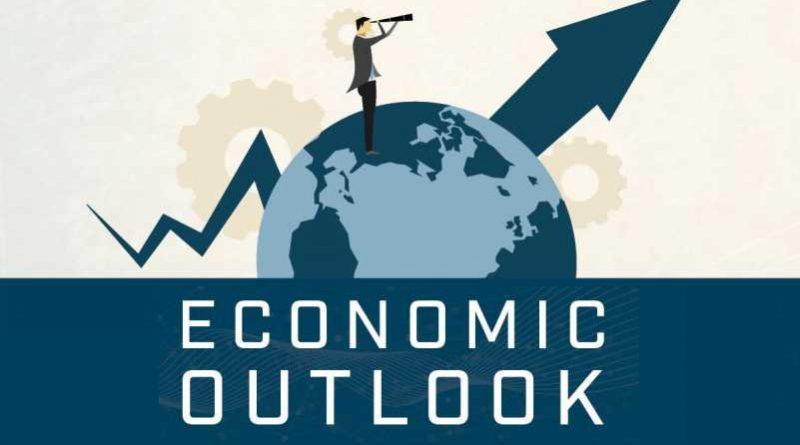Nigeria’s economic outlook remains unchanged as the IMF trims global growth forecast
In its most recent World Economic Outlook, the IMF reduced its worldwide prediction for 2023 from 2.9% y/y forecasted in its WEO from January ’23 to 2.8% y/y. The growth forecast for 2024 was reduced from 3.1% y/y to 3.0% y/y. The ongoing Russia-Ukraine issue has continued to create macroeconomic headwinds on a global scale, according to the IMF. However, following periods of lockdowns that hampered manufacturing activities, China’s economy is starting to recover.
For big economies like the US, the growth predictions for 2023 were revised downward, with growth falling from 1.4% y/y (in its January WEO) to 1.3% y/y. Given that inflation is still high and monetary policy tightening is ongoing, this reflects the diminished purchasing power of consumers and constrained capacity for investment.
Due to the knock-on effects of the Russia-Ukraine crisis and the ECB’s tightening monetary policy in response to inflationary pressures, growth in the Eurozone was revised up from 0.7% y/y (in its January WEO) to 0.8% y/y in 2023.
In 2023, China’s overall growth remained constant at 5.2% y/y. Due to the recent reopening of its economy, there has been a significant uptick in economic activity. The Chinese government has put in place a number of measures, including monetary policy relaxation, tax relief for firms, and incentives for finishing and delivering unfinished real estate projects. In an effort to spur economic growth, the PBoC has kept its policy rate constant since August of 22. However, ongoing issues inside China’s property sector and global financial uncertainty continue to pose a risk to the forecast.
The growth rate for the Russian economy was increased from 0.3% y/y (in its January WEO), according to the study, to 0.7% y/y. Despite the sanctions, it is understood that higher crude oil prices have helped to bolster the economy. In the future, the most recent OPEC decision to reduce oil production should maintain high oil prices.
In its January WEO, the Fund reduced its prediction for sub-Saharan Africa from 3.8%y/y to 3.6%. The somewhat bleaker prognosis is a result of tighter monetary and financial circumstances. The IMF revised up its prediction for Nigeria’s GDP growth from 3.2% y/y in 2023 to 3.0% y/y in 2024. The IMF claims that the prediction takes into account the high oil price environment, which is anticipated to support GDP. Our prediction for GDP growth in 2023 is 2.8% year over year. We anticipate that the non-oil sector will largely support growth. The manufacturing, agricultural, and service sectors will probably continue to be the main drivers of growth. We also took into account oil prices over $80 per barrel.
Bonny Light’s average oil price YTD is USD 84.1/b. Optimism regarding demand from China following its full reopening, the recent volatility in the banking sector, the decision by OPEC to reduce oil output starting in May, and Russia’s intention to reduce oil production by 500,000 mb/d starting in February until the end of 2023 have all contributed to the fluctuation in oil prices.
With China’s economy completely reopened, the IMF predicts that world oil demand would rise by 2.3% to 101.7 mbpd in 2023 from the 99.4 mbpd reported in 2022. However, it is important to note that the International Energy Agency projects a rise in world oil consumption of 1.9 mbpb in 2023, with an increase in China’s demand of 900,000 bpd on its own.
Additionally, the estimate for average global inflation has been reduced from 8.7% y/y expected in 202 to 7.0% y/y. This can be partially explained by the anticipated moderation in commodity prices (oil and non-oil) brought on by worries about a worldwide recession. Inflation rates for the Eurozone and China were reduced from 5.7% y/y and 2.2% y/y in 2022 to 5.3% y/y and 2.0% y/y, respectively. The downward revision mostly reflects the anticipated monetary policy tightening’s calming effects on inflationary pressure. In the meantime, the US’s inflation rate was increased from 3.5% y/y in 2022 to 4.5% y/y in 2023. In general, we anticipate that most advanced and emerging economies will see inflation that is above target in 2023.
Nigeria’s inflation is predicted by the Fund to be 20.1% y/y in 2023. In our opinion, by the end of 2023, inflation will have moderated to 18.5% y/y. Positive base effects were considered in our inflation projection. However, downside risks such as ongoing supply shocks brought on by the Russia-Ukraine crisis, structural problems that affect the cost of doing business, further naira depreciation in the parallel market, and an increase in the price of PMS because of the potential removal of subsidies are likely to keep inflation high. Source: Coronation merchant bank




